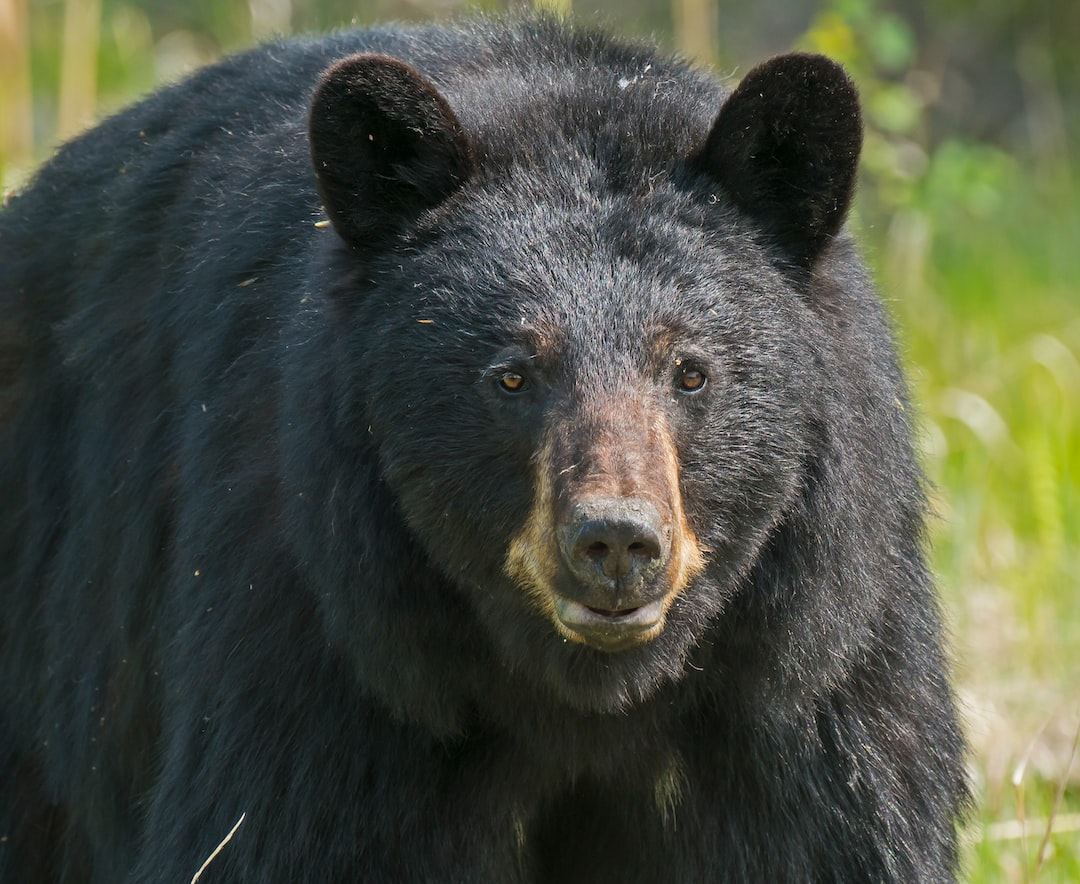So you’re here to find out if bear meat is safe to eat, right?
From a nutritional standpoint, there are some great benefits of eating this wild game. But what does bear meat taste like and where can you buy or hunt for it? In this blog post we’ll answer these questions and provide tips on how to store and prepare freshly hunted or purchased bear meat.
So read on if you’re curious about whether or not you can eat bear meat:
Is Bear Meat Safe to Eat?
Consuming bear meat can provide essential nutrients, but it is important to be aware of the potential health risks and adhere to local regulations.
Still, there are potential hazards to consider before partaking in this dish. It is important to understand the regulations for hunting and eating bear meat in your area, as well as the best practices for preparation of the meat.
Eating bear meat may present certain health risks, such as the potential for trichinosis due to consuming undercooked or raw wild animal flesh.
The most common risk is trichinosis, which is caused by ingesting parasites found in undercooked or raw meats from wild animals such as bears. If left untreated, trichinosis can lead to fever, muscle pain, nausea, vomiting and diarrhea.
To reduce this risk when preparing bear meat it should always be cooked thoroughly until its internal temperature reaches at least 160°F (71°C).
Regulations for Hunting and Eating Bear Meat:
In many states across the US there are specific regulations regarding hunting bears as well as rules governing consumption of their flesh.
For example some states require hunters to have a valid license or permit before they can hunt bears while others may restrict what type of weapon can be used during a hunt or limit how much game an individual hunter may take home per season.
Additionally some regions have laws prohibiting consumption of certain species of wildlife due to conservation concerns so it’s important to familiarize yourself with local regulations before attempting any kind of hunt involving bears.
When preparing bear meat, one should take care not only to cook it thoroughly but also avoid cross-contamination between raw meats and ready-to-eat foods like fruits or vegetables by using separate cutting boards when handling each item separately during food prep time.
Additionally, because bears tend to store fat in their muscles more than other types of game animals, trimming away excess fat prior to cooking will help ensure that you end up with tender cuts instead of tough ones after cooking has been completed.
Finally, marinating your cuts overnight prior to cooking them will help keep them moist during the cooking process while adding flavor at the same time; making sure that you enjoy every bite
Overall, bear meat can be safe to eat if it is properly handled and cooked. However, proper handling and cooking of bear meat must be taken into account to ensure its safety for consumption. Exploring the flavor of bear meat and techniques for cooking it will be discussed next.
What Does Bear Meat Taste Like?
Bear flesh has a distinct savor that is dissimilar to any other kind of wild game. It is usually described as having a slightly sweet taste with hints of nuttiness and earthiness, which makes it an interesting choice for wild game enthusiasts. Bear meat tends to be more chewy than other game meats, such as venison or elk.
To ensure the fat is rendered and meat tenderized, bear meat should be cooked slowly at low temperatures. This will also help tenderize the meat so that it doesn’t become tough when cooked too quickly at higher temperatures. Bear steaks should be seared to a rare or medium-rare doneness, while roasts should reach an internal temp of between 63°C and 71°C.
Common dishes made with bear include stewed cubes, jerky strips, smoked sausage links, ground burgers or patties and even sausages stuffed into casings.
When making these dishes from scratch you’ll need to ensure you have enough fat content in your recipe since this helps keep the finished product moist during cooking; adding bacon grease or lard works well for this purpose.
Additionally marinating cubed pieces overnight before cooking them can also help break down some of their connective tissues resulting in more tender bites when served up later on.
Overall, if you’re looking for something different than traditional wild game meats then bear might just fit the bill. Its distinct flavor profile combined with its versatility make it an ideal choice for anyone wanting to explore new culinary experiences in their outdoor adventures.
Bear meat has a unique flavor profile that can be enjoyed by those who have acquired the taste for it. For those seeking a nutritious addition to their meals, bear meat is an excellent source of protein and other essential nutrients.
Nutritional Benefits of Eating Bear Meat
Consuming bear flesh can be a nourishing source of essential nutrients. Bear meat is an excellent source of essential nutrients, vitamins and minerals to support a healthy lifestyle. Here’s what you need to know about the nutritional benefits of eating bear meat.
When it comes to macronutrients, bear meat is high in protein and low in fat. With a mere 4 grams of fat and 20 grams of protein, bear meat offers an ideal lean source of protein for those seeking a nutritious meal. It also has moderate amounts of carbohydrates, providing 6 grams per serving.
Bear meat is also packed with essential vitamins and minerals like iron, zinc, selenium, phosphorus, magnesium and B vitamins like thiamin (B1), riboflavin (B2) and niacin (B3). These are important for energy production as well as immune system health.
Owing to its abundance of omega-3 fatty acids, which help reduce inflammation and improve heart health; its high levels of amino acids that promote muscle growth; calcium for improved bone strength; vitamin C for enhanced immunity; lutein for better vision; plus choline found in the liver, which boosts brain function – bear meat is a nutritional powerhouse with numerous potential health benefits.
In conclusion, while hunting or purchasing wild game meats such as bears may require additional research into local regulations before doing so safely – if done correctly – bear meat can be a great source of nutrition that offers plenty beneficial micronutrients along with quality proteins. Hunters have enjoyed these benefits since time began.
Consuming bear meat can provide your body with the necessary protein, vitamins and minerals it needs to function optimally. Knowing where to acquire wild game meats, such as bear, and the relevant laws concerning hunting them is essential.
Where Can You Buy or Hunt for Bear Meat?
Hunting for bear meat is a popular activity among outdoors and recreation enthusiasts in the rural western United States. Regulations for hunting bears vary from state to state, so it’s important to check with your local wildlife management agency before heading out on a hunt.
Before hunting, it’s essential to get a license and any necessary tags or permits from the relevant wildlife authority.
When looking to acquire bear meat, there are various possibilities contingent on your geographical location. Certain states have specific rules for the sale of wild game meats, which can be discovered through your regional Department of Natural Resources or Fish & Wildlife Agency. Additionally, many specialty butcher shops carry wild game meats including bear meat. You can also find these items online at various retailers who specialize in selling wild game products.
Ensure the bear meat has been properly processed and stored as per USDA FSIS regulations before consuming. It’s also important to note that some states require hunters who harvest bears within their boundaries submit samples of their catch for testing purposes before they can consume them due to concerns about chronic wasting disease (CWD).
Whether you choose to hunt or buy your own bear meat, knowing where and how best to acquire it is essential for ensuring safe handling practices and legal compliance when consuming this unique delicacy. Doing your homework on the applicable statutes and obtaining any required permits is necessary to make sure that you have a good time while also staying within the boundaries of local regulations.
Verify that any bear meat obtained has been handled and stored according to FSIS health standards. Furthermore, some states may require hunters who harvest bears within their boundaries submit samples of their catch for testing purposes prior to consumption due to concerns about chronic wasting disease (CWD).
Before embarking on the hunt for bear meat, hunters must be aware of and adhere to relevant regulations. With the proper preparation and storage techniques, however, hunters can enjoy a safe and delicious meal of freshly hunted or purchased bear meat. Next we will discuss how to store and prepare fresh bear meat for consumption.
How to Store and Prepare Freshly Hunted or Purchased Bear Meat
When it comes to storing and preparing freshly hunted or purchased bear meat, proper storage techniques are key. To ensure freshness, bear meat should be stored in a cool environment and consumed within three days of being harvested; otherwise, vacuum-sealing is advised.
If you plan on keeping the bear meat for longer than that, vacuum-sealing is recommended. To prevent foodborne illness, it is essential to keep raw bear meat away from other edibles.
Cleaning and preparing freshly hunted or purchased bear meat can be intimidating at first but is fairly straightforward once you get the hang of it. When handling raw bear meat, it is critical to use hygienic tools and surfaces so that germs are not transmitted.
Start by cutting away any fat, sinew, gristle, or bones before marinating the pieces in salt water overnight (or up to 24 hours). This will help tenderize the tough cuts of bear meat while adding flavor as well. Afterward, rinse off each piece with cold water before patting dry with paper towels and transferring them into sealed containers until ready for cooking.
Cooking tips for freshly hunted or purchased bear meat vary depending on which cut you’re working with – steaks tend to do best over high heat while roasts work better slow cooked in liquid like broth or wine – but one universal rule applies: don’t overcook.
Because wild game meats are leaner than store-bought beef cuts, they need less time on heat otherwise they can become dry and tough quickly – something no hunter wants after spending hours tracking down their prey. To ensure juicy results every time try using a digital thermometer; medium rare (145°F) works great for most recipes but feel free to adjust based on personal preference too.
FAQs in Relation to Can You Eat Bear Meat
Are you allowed to eat bear meat?
It is permissible to consume bear meat in the US. However, there are certain regulations and restrictions that must be followed depending on where you live. In some states, like Alaska and Montana, it is possible to obtain a permit or tag for hunting bears for food.
Additionally, hunters should take care to properly prepare the meat before eating it by following safe cooking practices like freezing or aging the carcass first. Finally, check with local wildlife agencies to make sure all applicable laws have been followed when harvesting game animals for consumption.
Is it illegal to eat bear in the US?
It is prohibited to consume bear in the United States, no matter if it is from a farm or wild. All bear species, whether caught in the wild or raised on farms, are not permitted to be consumed. The U.S. Fish & Wildlife
Service prohibits hunting, possession, sale or transport of any parts from a bear for human consumption due to health concerns as well as conservation efforts for endangered species protection. All states have laws that prohibit eating bear meat, so it is best not to attempt this activity in any part of the country.
What are the benefits of eating bear meat?
Bear flesh is a powerhouse of nourishment, offering various health benefits. Bear meat is rich in protein, healthy fats, minerals like iron, zinc and selenium as well as omega-3 fatty acids which are more than beef or pork. The fat content of bear meat can vary depending on the species, but it generally contains more omega-3 fatty acids than beef or pork.
Bear meat also provides vitamins B12 and B6 which are important for energy production. Eating bear meat may reduce inflammation due to its anti-inflammatory properties, improve heart health by lowering cholesterol levels, boost immunity with its antioxidant content and provide essential amino acids needed for muscle growth and repair.
Conclusion
In summary, bear meat is safe to consume and has many nourishing advantages. It can be hunted or purchased from specialty stores in rural areas of the western United States.
To ensure safe consumption, bear meat should be cooked to an internal temperature of 160°F and stored for no more than two days before cooking. With these tips in mind, you can confidently answer the question “Can you eat bear meat?” with a resounding yes.



